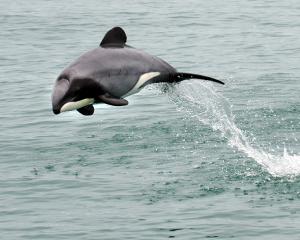A significant swing in the fortunes of the Dunedin City Council's group of companies can in large part be attributed to recent changes in governance and the ''tidying up'' of the operation of the companies, the chairman of the companies' parent group says.
The council's five companies and Dunedin International Airport, in which the council has a half share, reported a strong result for the year ending June 30.
Their annual reports, released yesterday, showed the group posted a $20.5 million surplus, up from a $5.1 million loss last year.
Not counting forest revaluation, carbon credit revenue, asset impairments and subvention payments, the group's net profits for the financial year were up $4.4 million on the previous year, to $11.5 million.
About $15.7 million, including a $9.5 million subvention payment to Dunedin Venues Ltd, interest payments and dividends, was paid to the council, meeting budgeted expectations.
Graham Crombie, chairman of Dunedin City Holdings Ltd, the holding company for Aurora Energy, City Forests, Dunedin City Treasury, Delta Utility Services, Taieri Gorge Railway and Dunedin International Airport Ltd, said various factors made up the improvement.
All the council's companies improved their financial performance and City Forests had its best year in Dunedin City Holdings' history of the company, with a profit increase of $12.7 million to $14.6 million.
Its profit was increased by a substantial improvement in the margins in export log sales, the sale of the last tranche of pre-contracted sales of carbon at favourable prices and a positive revaluation of the forest stock.
DCHL chief executive Bevan Dodds warned the existing stock of carbon credits was unlikely to sell as well in the short to medium term.
Aurora Energy and Delta Utility Services Ltd both had better performances, while Dunedin International Airport also had a strong year, due to terminal rent, car parking and taxi revenues increasing.
Its Fonterra shares, held as part of its dairying operation, also increasing in value.
At Delta, restructuring and a new strategic direction helped it make ''considerable progress'' in exiting from real estate investments at Jacks Point and Luggate and quitting its volatile civil contracting business.
Its loss of $5.9 million in 2011-12 turned into a profit of $4.6 million in 2012-13.
In coming years the overall business of Delta was expected to be more predictable and yield higher margins than in the past, Mr Crombie said.
There had also been significant progress in restructuring the operation and governance of the group, as recommended in a 2011 independent report commissioned by the council.
Mr Crombie said many of the positive developments of the past year could be attributed to interim DCHL directors Denham Shale and Bill Baylis, who were brought in to implement the changes and who would both stand down at the end of this year when replacements were found.
The directors appointed to company boards in the last quarter of 2012 had also contributed strongly.
''In some cases, a new focus has been brought to company strategies and good progress has been made in exiting investments now well recognised as non-core investments.''
Cash generated from operations, which was a critical measure as it was the basis for dividends and capital investment, also improved significantly and was at the highest for the past five years, he said.
That allowed the dividend to the council to be paid without borrowing, as well as allowing the group to reduce its overall debt by $10 million, to $253 million.
The balance sheet still showed a debt increase on last year to a total of $623 million, because the Dunedin City Treasury company accounted for the total debt of DCHL, the stadium and the council and the debt of the latter increased to cater for the completion of several budgeted projects, Mr Crombie said.
Dunedin Venues Management Ltd, which is a subsidiary of the council, but sits outside the company group, posted a net loss of $986,000, compared with a loss of $3.21 million for the corresponding period the previous year.
Chief executive Darren Burden said it was positive progress and aligned with expectations, but the company needed to remain focused on continuous improvement if it was to meet its financial targets, including $4 million rent each year paid to the council to retire debt.
During the year 272,000 people attended 60 events at the stadium, and 16,000 attended meetings, conferences or functions off the field.
The company had taken over the Dunedin Centre and Porter's Lounge at the Dunedin Railway Station which would be included in company accounts from next year.












